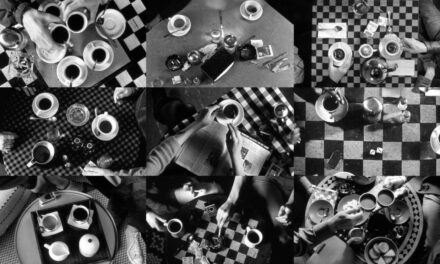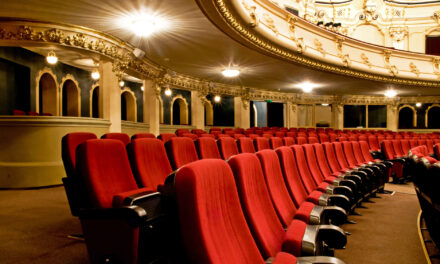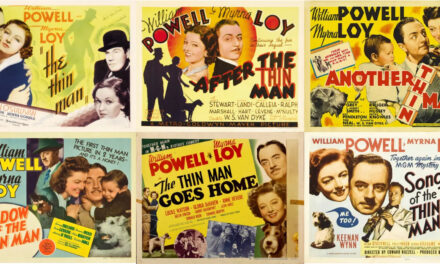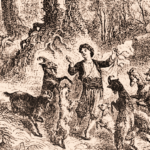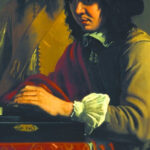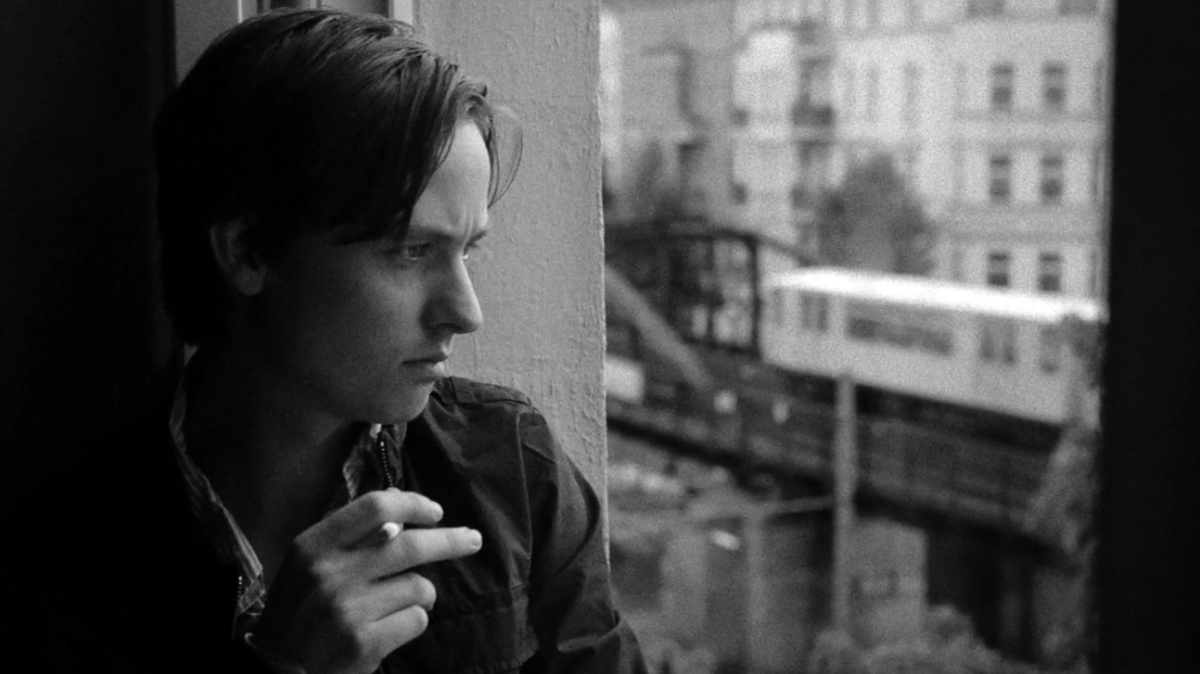
A Day in the Life: ‘A Coffee in Berlin’ Movie Review
A Coffee in Berlin, originally titled Oh Boy, 2012. Written and directed by Jan Ole Gerster. Starring Tom Schilling. In German with occasional English. [1h 26m]
The 2012 German film A Coffee in Berlin tracks a day in the life of Niko Fischer (Tom Schilling), a law school dropout in Berlin. This day is no doubt similar to many other days over the past year or two of Niko’s life, as he struggles to find direction and purpose. On this particular day, he even struggles to find a cup of coffee.
In the opening scene of the movie, it is early morning. Niko is getting dressed while a girl, Elli (Katharina Shüttler), is sleeping in the room. She wakes up and asks why he’s leaving so soon. He says he has some appointments. Elli offers to make them some coffee, but he turns her down: “That’s sweet, but I’m already late.” If he had known how the day would go, he might have accepted the coffee.
Elli suggests getting together that evening, but he says he has a million things to do. When he can’t be specific about what any of those things are, it dawns on her that it’s just an excuse, and he doesn’t want to see her again.
When we next see Niko, he is carrying a box into an empty apartment he’s moving into. After a brief look at some photos of Elli and himself—clearly she was his girlfriend and not just a casual fling—he takes a listless shower and makes an attempt at a wan smile in the mirror. He’s not a happy fellow.
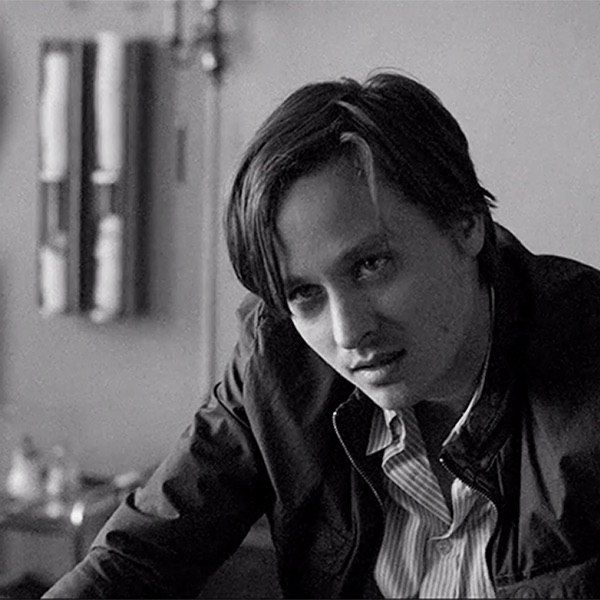
Niko Fischer (Tom Schilling) tries to order a cup of coffee in A Coffee in Berlin.
When he looks through his mail, he realizes that in fact he does have an appointment and rushes out the door. The appointment is with a psychologist whose job it is to recommend whether or not Niko will get his driver’s license restored. Apparently Niko has had a series of problems with alcohol.
The psychologist (Andreas Schröders) asks Niko if he’s had anything to drink that day. Niko says no. Incredulous, the psychologist asks, “No coffee? No water?” When Niko says he misunderstood the question and admits to having had some water (no coffee, though, since he refused his girlfriend’s offer to make it), the psychologist smirks and says, “So, drinking automatically means alcohol to you, right?” Given the psychologist’s reaction, it’s no surprise that Niko doesn’t get his license back.
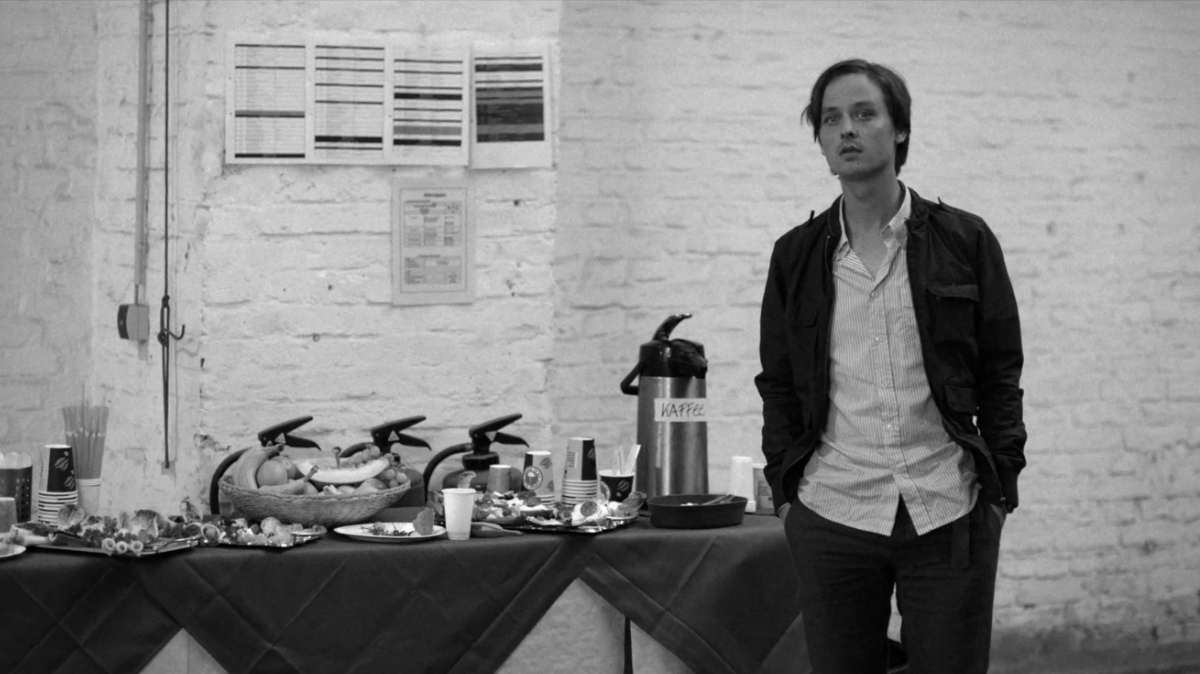
Niko observes a movie shoot after trying unsuccessfully to get a cup of coffee from an empty carafe (which is replaced with a full one after he walks away).
After the meeting, Niko heads for a coffee shop to get a cup of coffee. But Niko finds that getting a coffee in Berlin is going to be harder than he realized. When he rejects the barista’s suggestion of a marocchino in favor of a normal cup of coffee, the barista offers him a choice of Coffee Arabica or Colombia Morning. He chooses the Colombia, but he’s shocked when she says it costs three Euros forty. The barista offers a classic “coffee snob” response: “Yeah, that’s the Colombia!” Niko doesn’t have enough money, and the manager refuses to make an exception for him.
It’s a precursor of the coffee troubles that will haunt Niko throughout his day. He makes multiple attempts to get a cup of coffee, but he’s thwarted at every turn. He’s the victim of a broken coffee machine, an empty coffee urn, a machine that’s just been cleaned for the night, and a coffee vending machine that’s out of order.
Even his father (Ulrich Noethen) prevents him from getting his coffee: When they sit down for drinks at his father’s golf club, Niko asks for coffee, but his father orders him schnapps instead.
Niko’s repeated failure to obtain a cup of coffee is a joke, but it’s also a metaphor for his unfulfilled desire to fit in with the normal life all around him.
From his discussion with his father, we learn that Niko dropped out of school two years before. His father has been supporting him the whole time, thinking he was paying for Niko’s law studies. When his father asks him what he’s been doing, he replies that he’s been “thinking.”
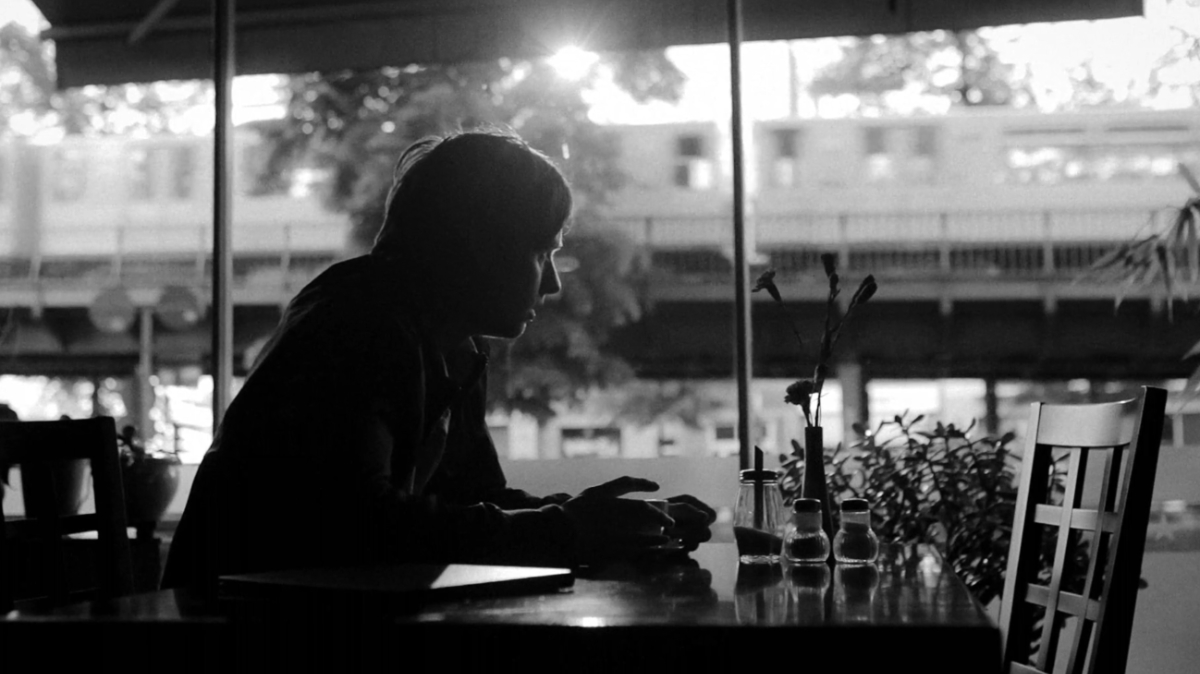
As a new day dawns, Niko contemplates his life—with coffee.
Niko has encounters with various people throughout the day, notably his neighbor Karl Speckenbach (Justus von Dohnányi) and Julika Hoffmann (Friederike Kempter), a girl he knew years ago in school. Although he hangs out for much of the day with his actor friend Matze (Marc Hosemann), he always seems alone, without meaningful connections. He does develop some rapport with Frau Baumann (Lis Böttner), the grandmother of Matze’s drug-dealing friend Marcel (Theo Trebs). And things briefly look promising with Julika.
In a bar late at night—after being rebuffed once again in his search for coffee—Niko is befriended by an old man (Michael Gwisdek) who tells him about being a boy in Berlin under the Nazis. The old man’s story touches Niko, and he seems to discover something about himself through his interaction with the man.
We can’t be certain that Niko’s life will be different. But I’d say yes. After all, the next morning, the first thing we see him do is drink a cup of coffee.
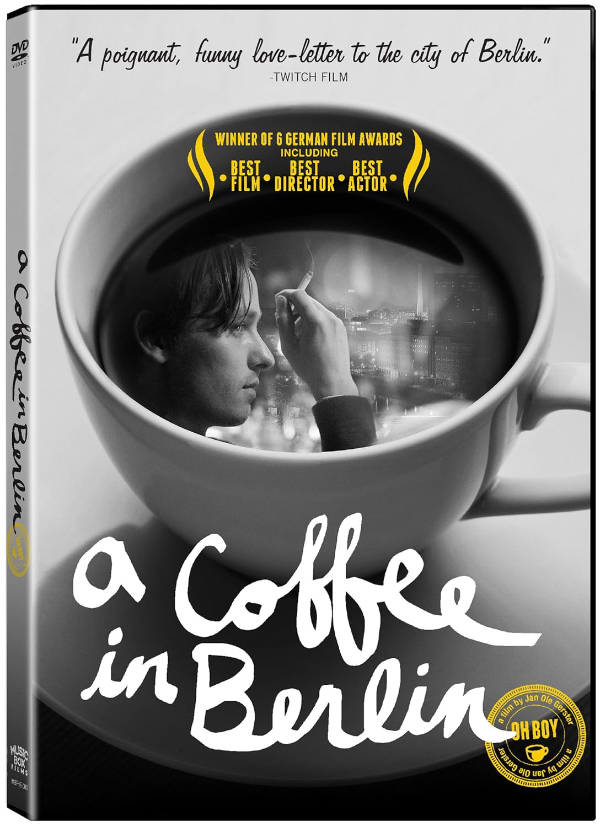
Buy ‘A Coffee in Berlin’ DVD on Amazon
As an Amazon Associate, I earn a commission from qualifying purchases
Written and directed by Jan Ole Gerster, A Coffee in Berlin is a beautiful gem of a movie. It’s funny, ironic, and melancholy, and in the end, hopeful.
Tom Schilling makes you care about Niko, even while you recognize he’s a slacker. Schilling’s Niko is introspective, deep, and sad. But Niko also consistently shows himself to be considerate and kind, especially as he bonds with the two older people he meets—Frau Baumann and the old man at the bar.
The supporting actors are very good too. Friederike Kempter is a standout as Julika, Niko’s former classmate. She has a very powerful scene with Niko, telling him she remembers that he wasn’t always so cautious, he always seemed to know exactly what he wanted. She succeeds in getting him to open up a little, for the first time all day, and confess that he feels out of step with everyone else.
The movie is stylistically reminiscent, probably intentionally, of Woody Allen’s 1979 masterpiece Manhattan, with gorgeous black and white photography and a great jazz score by Cherilyn MacNeil and The Major Minors. Like Manhattan, it’s an ode to a city, as Niko’s day takes him all over Berlin, giving Gerstner an opportunity to show off the city in all its gritty beauty.
Gerster has an eye (and an ear, too) for the understated detail. A couple of details that I enjoyed: An actor playing a Nazi soldier enjoying a smoke during a break with another actor in an overcoat with a Jewish star on it. Niko putting change in the coffee cup of a man sleeping on the street after the barista has just told him that he can’t get a break on the price of his coffee because then every bum will want coffee for free.
Thematically, A Coffee in Berlin is an exploration of the problem of finding one’s identity and purpose in a post-modern world (and in Berlin, a city still struggling with its Nazi past). And on a more mundane level, from a coffee lover’s perspective, it’s a film that validates the notion that sometimes you just need a cup of coffee, and once you have it, the world is right again.
Copyright © Brian Lokker 2015, 2024. An earlier version of this review was published on CoffeeCrossroads.com.

